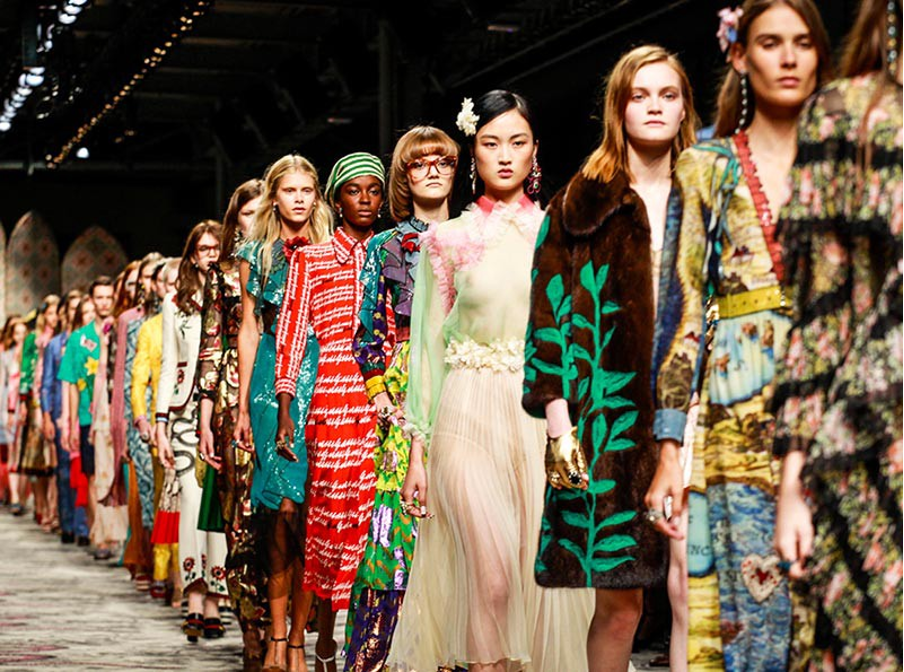In the vibrant realm of fashion, the BRICS nations—Brazil, Russia, India, China, and South Africa—emerge not only as economic powerhouses but also as key influencers in the global fashion arena. As these nations continue to mold the future of fashion, a comprehensive examination of the intricate legal landscapes shaping both creative and commercial facets becomes imperative.
BRICS Collaboration: Decolonization and Cultural Resurgence
Collaboration among the BRICS nations forms a coalition of over 3 billion people, creating a colossal fashion market that is reshaping the industry. This collaborative effort not only addresses shared challenges, such as international trade regulations and counterfeiting but also serves as a platform for the decolonization of fashion narratives. The reinforcement of cultural identities within legal frameworks becomes a cornerstone, paving the way for a future where diverse cultural expressions thrive on the global stage.

Image credits: France24
Brazil: Safeguarding Creativity through Intellectual Property
Within Brazil’s fashion legal landscape, intellectual property rights are mixed intricately. Designers and brands prioritize trademark and copyright laws to shield their creations from imitations. Cultural considerations, addressing issues of cultural appropriation and the preservation of Brazil’s diverse heritage, further influence fashion law. Notably, Brazil takes strides towards sustainability and ethical practices, expanding legal frameworks to encompass environmental standards and labor regulations, fostering a socially conscious fashion industry.
Russia: Crafting Intellectual Property Strongholds

Image Credits: thirdworlsprofessional.com
Russia’s fashion scene unfolds against a backdrop of a growing market and heightened emphasis on intellectual property protection. Designers and brands leverage robust trademark and copyright laws to fortify their creative assets. As the industry expands, sustainability and ethics come into focus, sparking legal discussions on environmental standards and fair labor practices. The digital transformation is a key aspect, with e-commerce regulations and laws governing online transactions playing a vital role in shaping the rapidly expanding digital retail space.
India: Interweaving Tradition into Fashion Law

Image Credits: Ipining.com
India’s fashion narrative seamlessly blends traditional craftsmanship with modern design, creating a distinctive legal landscape. Intellectual property laws play a crucial role in safeguarding traditional designs and textiles, ensuring the protection of the nation’s cultural heritage. Fashion law in India extends beyond intellectual property, encompassing fair trade practices and ethical sourcing. Sustainability takes center stage in legal discussions, with frameworks adapting to address environmental concerns and promote ethical practices.
China: Transitioning from Manufacturing Hub to Fashion Powerhouse

Image Credits: Chinadaily.com.cn
China’s ascent to a global fashion powerhouse is marked by a robust legal framework focusing on intellectual property protection. Trademark and design laws play a pivotal role in securing the innovations of designers and brands. Addressing challenges such as counterfeiting, legal measures are in place to curb the proliferation of knockoffs. In the digital age, China leads in technological innovation in fashion retail, with e-commerce regulations and laws governing digital transactions crucial components of the legal landscape.
South Africa: Harmonizing Heritage and Modernity

Image credits: The Mail & Guardian
South Africa’s fashion landscape is a harmonious blend of traditional and contemporary influences, shaping a unique legal environment. Legal considerations revolve around cultural appropriation, emphasizing the importance of respecting and preserving the nation’s diverse heritage. Intellectual property laws evolve to protect both traditional and modern designs. The industry grapples with sustainability issues, and legal frameworks address environmental concerns and promote ethical practices.
Collaboration and Challenges: Addressing Cross-Border Fashion Law Issues
Collaboration among BRICS nations is vital in tackling shared challenges in the fashion industry. Cross-border issues, including international trade regulations and the fight against counterfeiting, necessitate joint efforts to establish effective legal frameworks. Collaborative initiatives can facilitate the exchange of best practices, contributing to the development of comprehensive solutions that safeguard the interests of designers and consumers alike.
The Future of Fashion Law in BRICS: Striking a Balance between Innovation and Regulation
Looking forward, the evolution of fashion law in the BRICS nations promises to continue. Embracing technological advancements, addressing sustainability concerns, and fostering international cooperation will be pivotal in shaping a legal landscape that not only accommodates the dynamic nature of the fashion industry but also ensures the protection of creative expressions and the rights of stakeholders across borders. In conclusion, the BRICS nations not only significantly contribute to the global fashion landscape but actively shape the legal frameworks governing the industry. By delving into the unique legal considerations within each nation, the fashion industry in the BRICS bloc can navigate the complexities of a rapidly changing global landscape while fostering an inclusive and legally secure environment for creative expression and commercial growth.
Author:
 Felipe Jaruche, an accomplished legal professional, showcases expertise in corporate law and the dynamic interplay of the fashion industry.Beyond the corporate realm, Felipe accentuates a global, inclusive, and ethically informed approach within the broader socio-political context of the fashion industry. He holds a master and phd studies in humanities, being also part of the European Solidarity Corps in Italy for the past years. Felipe’s analyses encompass sociology and human rights, offering comprehensive insights.
Felipe Jaruche, an accomplished legal professional, showcases expertise in corporate law and the dynamic interplay of the fashion industry.Beyond the corporate realm, Felipe accentuates a global, inclusive, and ethically informed approach within the broader socio-political context of the fashion industry. He holds a master and phd studies in humanities, being also part of the European Solidarity Corps in Italy for the past years. Felipe’s analyses encompass sociology and human rights, offering comprehensive insights.


















